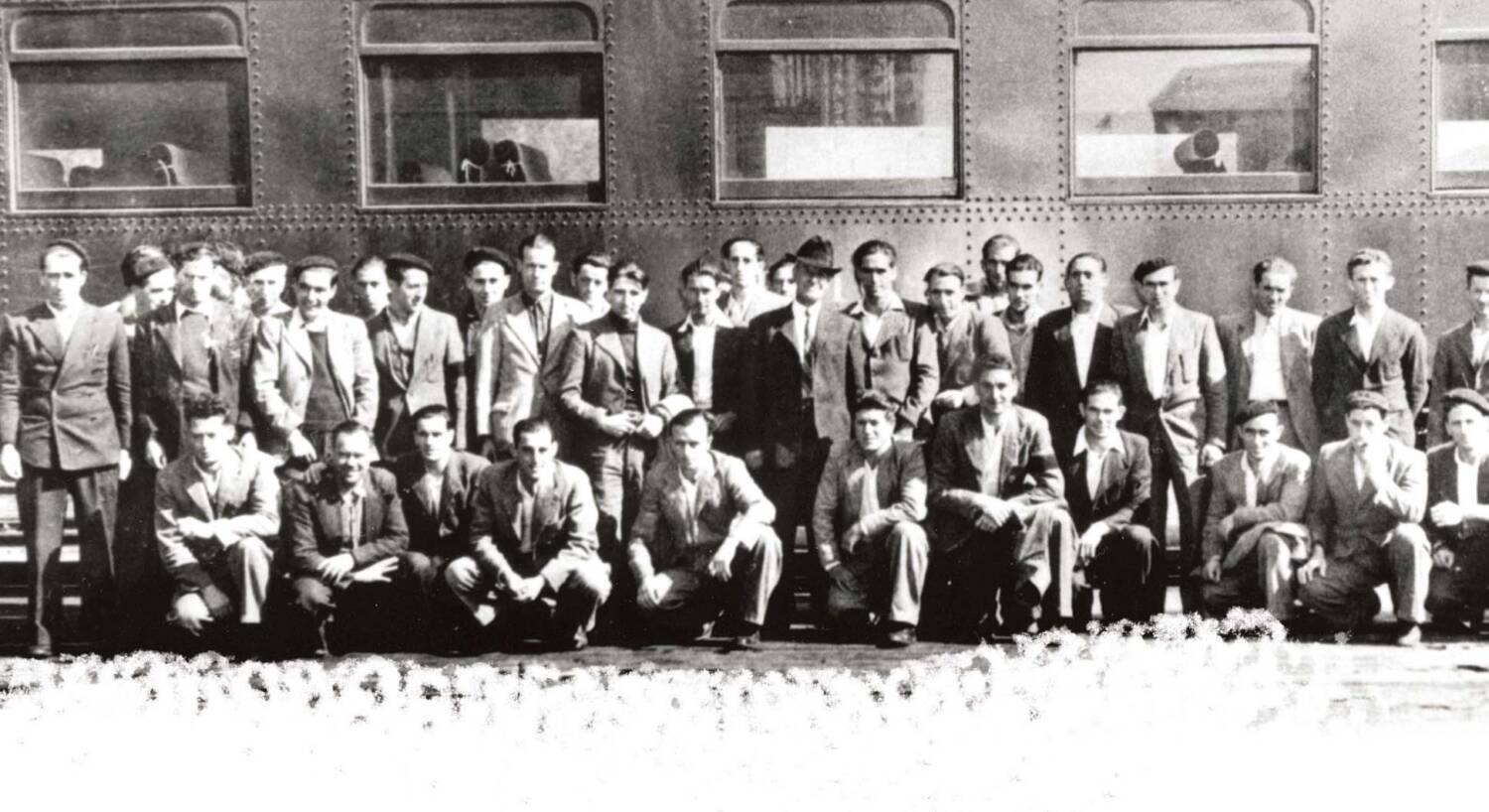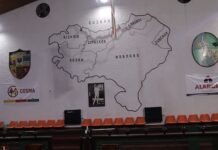IKER SAITUA is a Postdoctoral Fellow in the Department of History at the University of California, Riverside and the University of the Basque Country (Postdoctoral Research Program of the Basque Government). He holds a PhD from the University of Nevada, Reno. His work focuses largely on the intersections between agricultural labor, natural resources, and livestock raising in the American West. Saitua’s first book, Basque Immigrants and Nevada’s Sheep Industry: Geopolitics and the Making of an Agricultural Workforce, 1880-1954 (Reno: University of Nevada Press, 2019), offers a critical examination of the history of Basque sheepherders in the West.
Iker Saitua is an old friend of our blog. All these years, we’ve been reading articles of his that we’ve come across with great interest, as he told the story and the lives of the Basque emigrants to the Far West.
We’ve always appreciated his way of writing and describing that part of our history. His texts, which are interesting as stories, are the natural consequence of his work as a historian, because, as can be seen in his mini-bio to the left, Iker Saitua is one of those highly educated young people Basque society is all about raising. Out of all these years of research and work in Nevada and other states with an important Basque presence came his book, in which he tells the process the Basque community in that part of the US went through to be as recognized as they are today.
He was kind enough to answer our request, and he’s written an article presenting and explaining his book “Basque Immigrants and Nevada’s sheep industry, Geopolitics and the Making of an Agricultural Workforce, 1880-1954”
Basque Immigrants and Nevada’s Sheep Industry; Or, How Basques Became Desirable Immigrants in the American West
By Iker Saitua
Basque immigrants in the late nineteenth-century American West were newcomers to an already established grazing empire based largely on cattle. In the 1890s, when an increasing number of Basque immigrants arrived in the West to work as sheepherders, their presence in the public ranges began to disturb the economic interests of the older cattle ranchers. Competition between cattle owners and sheep graziers for the forage resources intensified, oftentimes flaring into violence. Contracted sheepherders, such as the Basques, bore the brunt of the resulting range conflicts.
Basque sheepherders, with their flocks coming onto public grazing lands, were perceived as a serious threat to the cattle economic interests, sustainable agricultural development, and public interest in general. They were blamed for the number of interrelated economic and environmental problems affecting the public grazing lands. Under such circumstances, Basques sheepherders soon turned into villains of public rangelands. Then, Basques were seen as the very antithesis of nationally venerated cowboys. While cowboys were viewed as the embodiment of the American frontier spirit through self-reliance and hard work who rode horses, sheepherders were denigrated as despicable and inferior class of laborers who walked long distances allowing sheep to roam at will across the wide-open range. The elevation of the venerable cowboy rested on the downgrading of the humble sheepherder.
Simultaneously, the negative archetype of the Basque sheepherder had begun to contrast with another stereotype: that of the good sheepherder. The myth of the good shepherd had been constructed on the fallacious idea that sheep ranching was the main economic sector in the Basque Country and thereby, the people who inhabited those lands had been dedicated to sheep herding since ancestral times. Thus, according to this idealized vision, Basque immigrants simply transplanted their skills as shepherds in the Old Country to the new geographical environment in North America.
The positive image of Basque sheepherders was loaded with ideas of racial superiority and aptitude. During the first half of the twentieth century, as I explain in my book Basque Immigrants and Nevada’s Sheep Industry: Geopolitics and the Making of an Agricultural Workforce, 1880-1954 (2019), the racial attributes given to the Basques were progressively adjusted to the profiles of racial subjectivity imposed by the dominant white society in the United States. These ideas were reinforced in the interwar years and broadly acknowledged during World War II in the face of a critical labor shortage in the sheep industry. Among other issues, my research for the book Basque Immigrants and Nevada’s Sheep Industry charts the transformation of Basque sheepherders from scorned subjects to desirable workers.
The book can be purchased on the website of the University of Nevada Press
Last Updated on Oct 1, 2021 by About Basque Country







